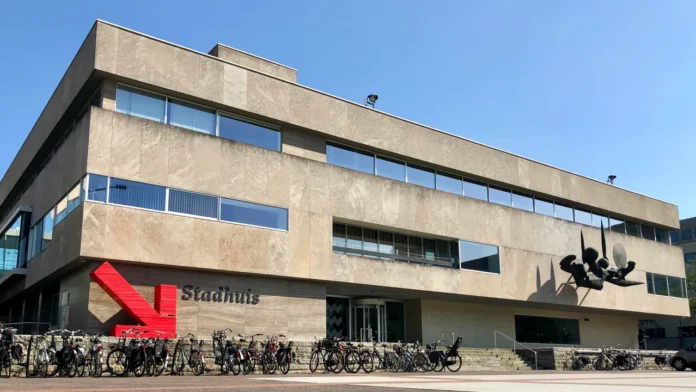Complicated files, endless meetings and contact with (angry) citizens: the workload of Eindhoven councillors is high. This appears from research by Studio040. Nevertheless, they heartily recommend their task.
The agenda of a councillor is full, sometimes overfull. Besides a job or other (care) tasks, participating in the city council takes on average at least 16 to 20 hours per week. It is therefore not surprising that most councillors in Eindhoven suffer from a high workload, according to a survey by Studio040.
The survey yielded 24 responses, slightly more than half of the council. Of these, 80 per cent called the work pressure high to very high. Nearly 60 per cent of those questioned have been councillors for four years or less, the rest for longer.
Council monitors the municipal executive board ‘reasonably’
When asked how councillors are able to carry out their own monitoring duties, just under two thirds (62.5 per cent) replied ‘reasonably’. Four councillors felt they monitored the executive committee ‘moderately’. One councillor feels that the control function is ‘good’, but also mentions the importance of the framework function (establishing the main policy lines and the limits of administrative powers). More support is certainly needed for this framework-determining task.
Respondents were slightly less positive about the extent to which the municipal council as a whole fulfils its monitoring task. Slightly more than half (54 per cent) feel that the council monitors the executive committee ‘reasonably’, barely 30 per cent feel this is ‘moderately’. One councillor felt that online meetings made it more difficult to exercise control.
High workload and great satisfaction
These answers are reasonably in line with research by NOS (Dutch broadcasting corporation) and the Nederlandse Vereniging voor Raadsleden (Dutch association of councillors). A large-scale survey among councillors throughout the country shows that approximately half of them are not satisfied with the level of the council. The high pressure of work is an important reason for quitting council work, which most of them (64 per cent) find very satisfying.
This satisfaction is also apparent from the Studio040 questionnaire. Despite the high work pressure, 21 out of 24 respondents would recommend council work to people around them. They find it nice to be ‘in the centre of the city’ and to contribute to solving social issues. “You get to know the city and the diversity of its inhabitants and their perspectives, which often surprises you, stimulates you and gives you energy to develop the city further”, one councillor writes.
Getting things done
Moreover, over 90 per cent of the respondents feel that they and/or their party have been able to make a difference over the past four years. Members who were in a coalition party point out that the coalition agreement has largely been implemented and that there was a lot of room for proposals and initiatives from other parties. Opposition parties go along with this to some extent.
“We in the opposition have – against expectations, perhaps – managed to get quite a lot done”, one councillor writes. “You do have to choose what you put your energy into, especially subjects that are not entirely fixed in the coalition agreement. On the subjects where the coalition holds on to each other, there is nothing to be gained”.
Another councillor points to the teamwork in the group. “By sharing information with each other and supporting each other in building a social network, the choice of vote in the municipal council is given colour. For example, associations and entrepreneurs have been invited by us to explain what they need to make the city safer and more affordable”.
More resources
To be able to do their work better, more than two thirds think that more money is needed for group support. More than half of the respondents felt that the provision of information by the municipal executive could be improved. Over a third would like to see more emphasis on the content of policy during debates.
Source: Studio040
Translated by: Bob















